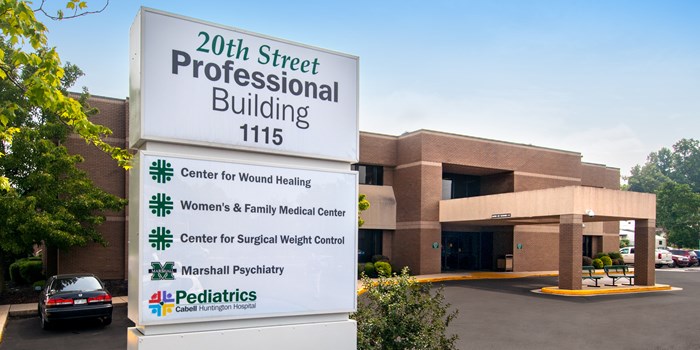Our one-year doctoral internship is based on a "practitioner-scholar" training model, emphasized by experiential learning and research. This program features rotations in both inpatient and outpatient settings with a focus on psychological care in rural areas.
This doctoral internship provides the final level of training for doctoral-level clinical psychologists. An independent, full-time program, it is supervised by full- and part-time psychology faculty in the Department of Psychiatry & Behavioral Medicine and provides an excellent training opportunity in both adult and child psychology. Didactics are provided as well as supervision of clinical care.
The emphasis of this training program offers opportunities for advanced students in clinical psychology to complete generalist training that will prepare them for entry-level work in the field of behavioral health. In addition, the program helps engender a sensitivity to working with underserved populations with a special emphasis on encouraging future careers in Appalachia in general and West Virginia, in particular.
Work in the field of clinical psychology involves the assessment, diagnosis, treatment and prevention of psychological distress, disability and health risk behavior. The role of the clinical psychologist also involves consultation, program development and evaluation, administration, teaching and research. As such, various partners in the internship training consortium will offer experience in these areas and interns will have access to the areas which best fit their career goals.
Attendance Requirements
According to APPIC standards, a doctoral internship is comprised of not less than 1,500 clock hours. The licensing standards for the state of West Virginia specify 1,800 clock hours. The internship training program is designed to meet the 1,800 clock hour standard. It is expected that interns will be at their specified sites for a minimum of the equivalent of 50 weeks at 40 hours per week. At least 40 -50% of the intern’s time should be spent in service delivery. Approximately 20-25% of the time should be dedicated to didactic training and study. The remainder of the time is dedicated to paperwork and other clerical duties. All intern training will begin on/about August 15 of each year.
Training Activities
Clinical training activities include assessment (psychological testing, diagnostic interviewing and report writing), treatment (both short - and long-term therapy) and interdisciplinary consultation. Clinical training is provided through direct client assessment and treatment (can include individual, group, marital and family) as well as through the observation of faculty members’ work. The major theoretical orientations of the staff are integrative-behavioral, cognitive-behavioral, and psychodynamic. Supervision occurs through weekly meetings and utilizes a variety of methods including case review, review of video/audio tapes and direct supervision.
The internship typically begins on or around August 10th of each year and runs for 12 consecutive months. Interns may need to be in contact earlier with a site in order to complete necessary employment paperwork and/or orientation activities. Interns cannot work “extra” hours in order to try and finish up their internship earlier.
At least 30-50% of the intern’s time will be direct clinical service delivery.
On-Site Supervision
Intern supervision is provided by faculty members of the internship agency or by qualified affiliates of that agency who carry clinical responsibility for the cases being supervised. Regularly scheduled individual supervision is provided by one or more doctoral level licensed psychologists, at a ratio of no less than one hour of supervision for every 20 internship hours. Supervision is provided with the specific intent of dealing with psychological services rendered directly by the intern. The supervision process involves not only case assessment, intervention, and management, but also focuses on the intern’s development of his/her unique therapeutic style and professional identity.
Didactic Training/Group Supervision
One way in which the training domains will be met is through training/seminars provided by each training site that will cover these topic areas. Interns will complete a minimum of 2 hours of didactic training and/or group supervision per week for a total of approximately 100 hours per year. All interns must participate in the didactic seminars/group supervision as outlined in the training schedule for the year. The training sessions will be held at Marshall University Department of Psychiatry and Behavioral Medicine. All interns will be given time away from their respective sites to attend these weekly sessions. Didactics will include a variety of training experiences. In addition to the weekly on-campus sessions, other potential training opportunities include (but are not limited to); case conferences, seminars, in-service training, attendance at training workshops, conference attendance, conference presentations, and guided readings/discussion.
Training Sites
Interns have the opportunity to work at a number of training sites. Primary training will occur in the Department of Psychiatry & Behavioral Medicine. Interns may also have the opportunity to work in the Department of Obstetrics &Gynecology. Interns are considered employees of Marshall Health and are required to follow their respective agency's policies and procedures. Interns may be required follow various agency regulations such as background checks and/or drug screenings prior and during their work at various consortium sites.
Hours of operation are generally from 8 a.m. to 5 p.m. Monday through Friday. Although it may vary, it is expected that full-time interns will work an average of 40-45 hours per week.
Training Resources
Interns have access to all the same clerical, technical and electronic support as any provider in the Department of Psychiatry & Behavioral Medicine. Interns work with an assigned front desk staff person to schedule patients into the template created by the Director of Training and based on their current responsibilities and rotations. Interns communicate with front desk staff verbally and utilizing a secure HIPAA compliant encrypted texting platform. Front desk staff manage phone calls and provide messages to the interns regarding patient care. In addition, they check-in patients and assist them in completing necessary registration and consent paperwork.
Interns are provided with individual office space, a desk, office phone, voicemail, printers and software, an ID-badge and basic office supplies. A wide variety of assessment equipment as well as manuals, computer scoring programs and other training resources including books and materials for play therapy are available for intern use. Interns who are interested in rotations that require additional on-line training will have that covered by the Department of Psychiatry & Behavioral Medicine. Attendance at professional conferences is encouraged and funding for those is available.
Interns are provided with a desk-top computer in their offices. They may also access systems remotely using a designated secure platform. Marshall Health’s IT support services are available through phone communication and an on-line ticketing system.
Interns have access to the Marshall University Library system to assist in research endeavors.



